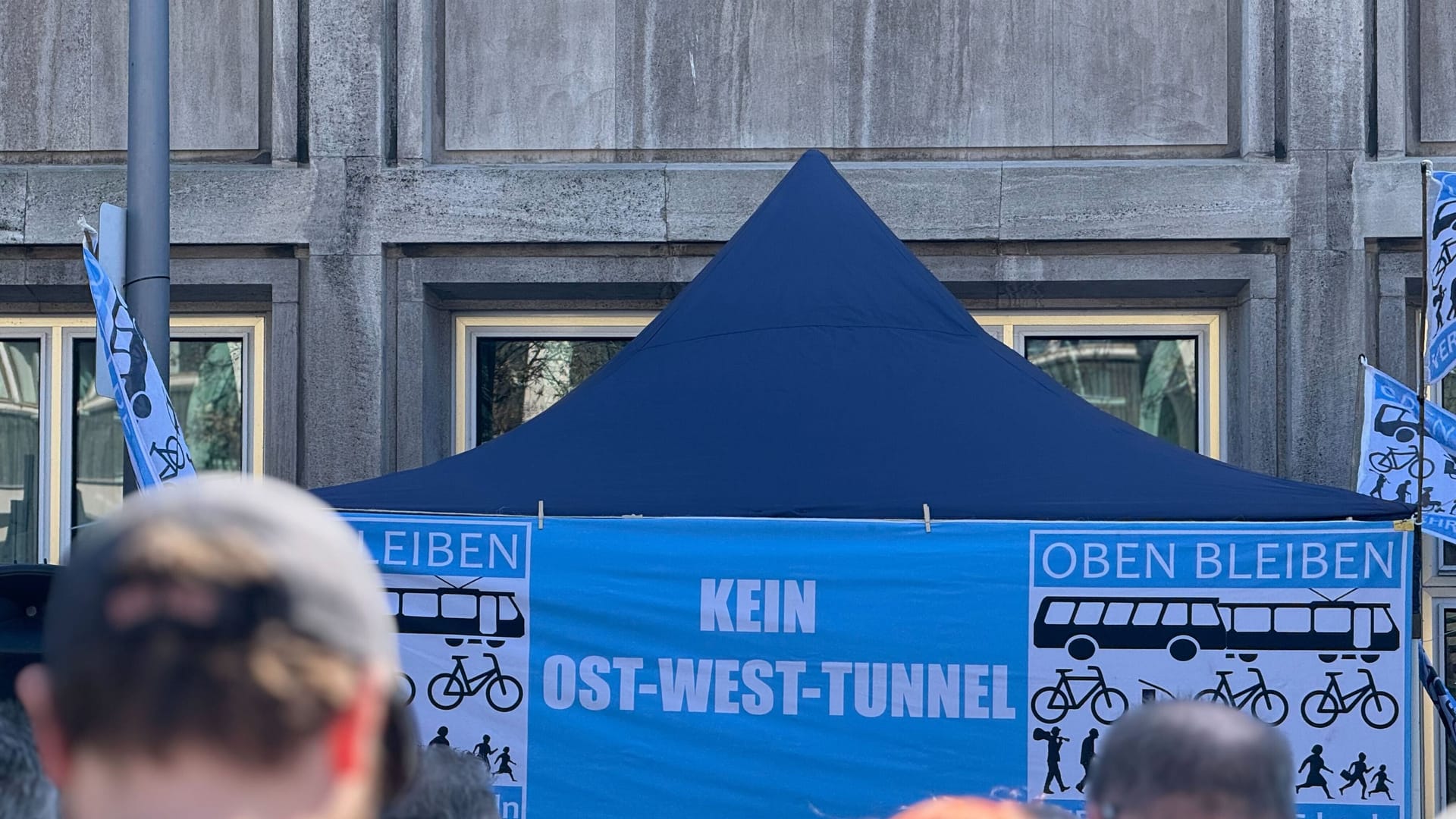After months of dispute, the tunnel alliance prevailed. It is clear with a narrow majority: an underground subway for Cologne comes.
The City Council of Cologne voted for a tunnel solution on the planned east-west axis. On Thursday (April 3), the tunnel alliance from CDU, SPD and FDP received support from Mayor Henriette Reker (non -party) and the AfD. Since a total of four council members were not present, it did not need the voices of the right -wing extremist party to achieve a majority.
A total of 49 council members voted for the underground expansion. Leftists, Volt, the party and the Council Group Climate Corporate & Gut voted against the expansion. The Greens stayed away from the vote. Three members of the Greens and a Councilor of Volt were missing on Thursday. A total of 63 voting members were members of the council in the hall.
The Greens had left the hall before the vote and did not agree. Green Group Chairman Christiane Martin said: “If democrats submit a proposal, you have to ensure that there are no majorities from right-wing parties or chance.” Random absences would not change that. It is “the darkest moment of this election period” for the faction, Martin continues.
Before the council meeting, more than 100 people had demonstrated against the subway tunnel in front of the town hall. The debate was also characterized by partly tumultial interjections.
It is clear: Cologne gets a subway tunnel across the city center. The parties then decided that an expansion of the originally planned axis between Heumarkt and Moltkestrasse should be checked. On the one hand with a Rhine tunnel to the Deutzer Freiheit stop, on the other hand behind the intersection of Aachener Straße/Universitätsstraße. In addition, a new subway tunnel on Dürener Straße is to be built.
The Greens had preferred an above -ground solution until the end and, as the largest faction in the council, faced the tunnel alliance. A letter from the NRW Ministry of Transport on Wednesday (April 2) had also left open whether a tunnel solution under the given conditions is as eligible as the above-ground variant.
Green parliamentary group manager Lino Hammer criticized the tunnel variant again: “We are for the top. Not out of ideology, but because we are serious about the turnaround. The upper expansion is faster. It is cheaper, in times of scarce households. It is more climate-friendly.” Multiple attempts to find a common solution have failed. “There could have been an agreement,” said Hammer.
The left also criticized the decision as a “transparent deception maneuver.” Due to the tunnel solution, 30 million in planning costs of the city administration for the bin, “said Councilor Heiner Kockerbeck. Isabella Venturini (volt):” We are not satisfied with both variants. Our criteria are more fulfilled by the upper variant than through the tunnel variant. “
The CDU parliamentary group leader Bernd Petelkau called the new tunnel “The Heart of the Metrosystem”. “We need a powerful network in the heart of our city that we can further expand in the future,” emphasized Petelkau. The SPD parliamentary group leader Christian Joisten spoke of a “cross-generational decision”. The decision for the subway tunnel is one that will influence the coming decades, if not a century.
FDP politician Ralph Sterck called the Ministry of Transport a “stink bomb from Düsseldorf”. A survey by the Cologne team made no sense, because then the deadline for funding would not be met. “That would be fatal for the city of Cologne.”
The expansion of the network with possible metrolinia was also decided. Up to four connections are planned, some of which are to drive on the existing KVB route network. A junction of the new subway tunnel should also be used for this, which is to be created under the Aachen pond and is to lead over Dürener Straße towards Luxemburger Straße. The exact course of the route is still being checked.












